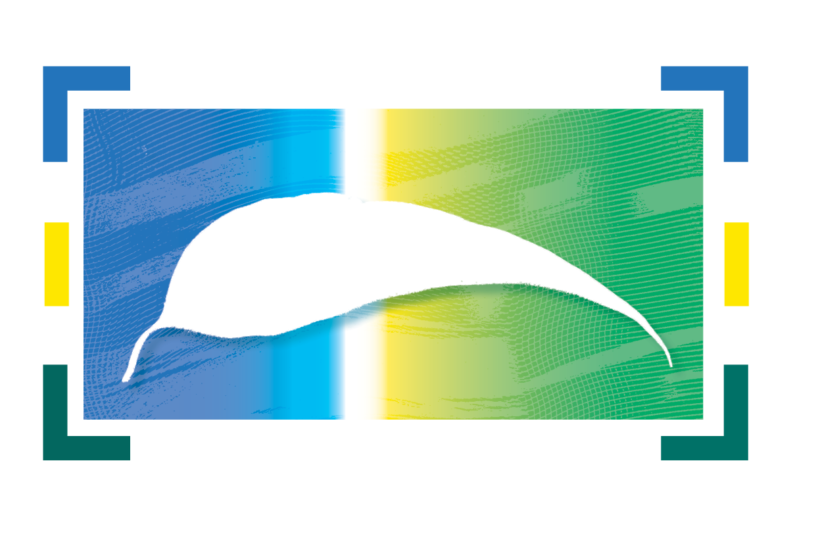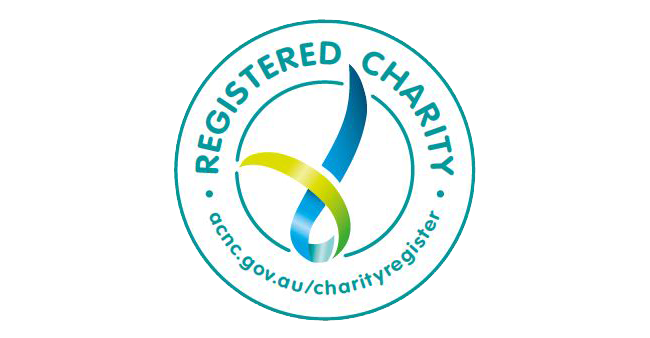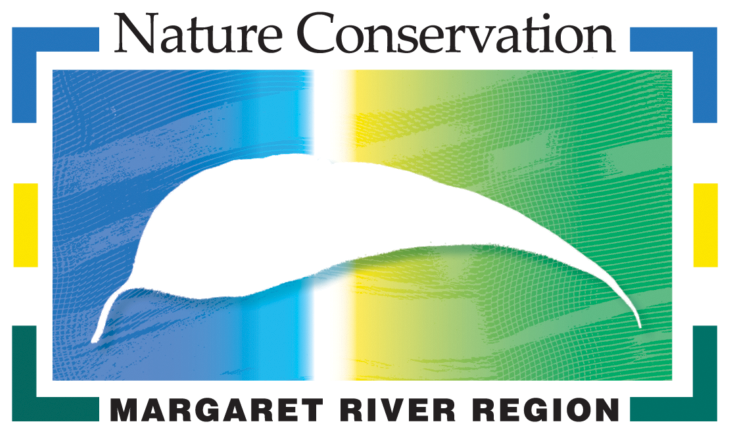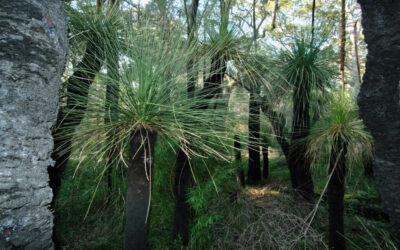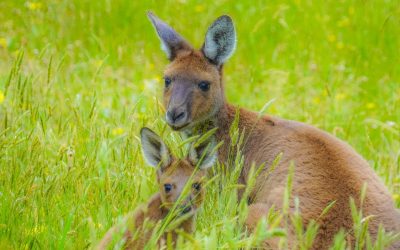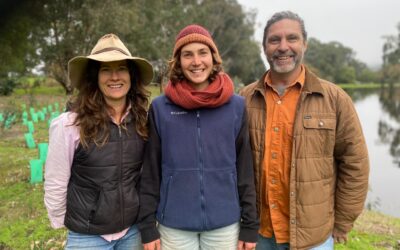The Cape Naturaliste Conservation Enterprise
is a grass-roots project that thinks big!
Imagine a landscape repaired – native plants and animals flourishing in a world-leading example of conservation, by a community working together with a bold shared vision.
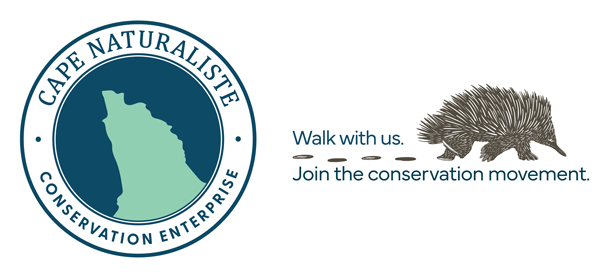
The enterprise
The Friends of Meelup, partnering with Nature Conservation Margaret River Region, received State NRM funding to implement the Cape Naturaliste Conservation Enterprise (CNCE) over 2024-2027.
The CNCE is a comprehensive, cross-tenure project, and provides funding for on-ground conservation work including subsidies for private landholders. The project subsidises the cost of weed and feral animal control, revegetation and fencing of creek lines and bushland.
Feral animals
Feral animals, including foxes, feral cats and rabbits, have a huge impact on biodiversity. Since European settlement, foxes and feral cats have played a significant role in the majority (at least 27) of the 34 native mammal extinctions. Both foxes and feral cats also impact livestock and productivity through predation and/or transmission of disease. Rabbits predate on our native plants and prevent natural regeneration by eating seeds and seedlings.
The CNCE is prioritising feral animal control on Cape Naturaliste, and building on the important work that the City of Busselton has been doing in Meelup Regional Park and Big Rock reserve for years. We are expanding control to private properties to help create a safe haven for our precious fauna.
We’re looking for rural property owners on Cape Naturaliste who are keen to play their part protecting our native fauna by controlling foxes and/or feral cats on their property.
Your registration includes:
- A FREE training workshop about feral animals, their impacts, methods for control, and how to use the FeralSCAN app,
- Provision and setup of monitoring cameras to monitor feral activity and movement,
- Feral animal control as carried out by a licensed pest control operator, with up to 50% of costs covered, and
- Landholder barbeque at project completion, with presentation of results and celebration.
Registrations for the 2025 program closed February 28, 2025. Our 2026 program will open in January/February 2026.
Contact: Mandy Polley mandy.polley@natureconservation.org.au
Priority environmental weeds
Invasive weeds have a huge impact on biodiversity, often replacing native plants with a monoculture of one or few species, which in turn impacts wildlife that depend upon them for food and habitat, changing soil microbiology and natural fire regimes, and changing the nature of the beautiful, Cape Naturaliste landscape that we connect to. Funding is available for priority environmental weed control, including arum lily and some woody weeds. Join hundreds of landholders across the capes region that are doing their bit to protect our unique natural environment.
Your registration includes:
- A FREE site assessment to understand the weed problem on your property,
- First access to FREE training workshops on weed control,
- FREE access to herbicides for arum lily control,
- Funding of up to 50% for the cost of a contractor to control priority weeds
Registrations for the 2025 program close on July 15th, 2025 with limited numbers available. Contact: Mandy Polley mandy.polley@natureconservation.org.au
Revegetation
One of the reasons Cape Naturaliste is so highly valued is because of its beautiful bush landscape, and the wildlife that lives here.
Loss of native vegetation is a huge threat to biodiversity, and to the resilience of our natural environment in the face of climate change. Whilst land was originally cleared for agriculture, vegetation continues to be lost and degraded over time from weed invasion, soil erosion and compaction, reduced rainfall, and trampling/grazing by stock.
We’re looking for rural and rural residential property owners on Cape Naturaliste who are keen to revegetate their properties with local native species, whether motivated by bringing back wildlife, restoring bare areas, creating wildlife corridors, or simply to enhance amenity.
Your registration includes:
- A FREE site visit to determine the scope of the project in consultation with the landholder, and to develop a species list,
- Ordering of tubestock, soil additions, and tree guards/stakes (if necessary), with up to 50% of the costs covered (funding is limited and will be allocated on a first come, first serve basis),
- A FREE landholder training session on how to effectively plant your seedlings.
Contact: Mandy Polley mandy.polley@natureconservation.org.au
Fencing
Do you have remnant bushland or a creekline on your property that you wish to conserve/enhance?
Fencing these areas has numerous benefits:
- Protects vegetation from stock grazing/trampling.
- Allows natural regeneration in otherwise bare areas.
- Improves water quality in creeklines by preventing stock fouling the water and siltation from erosion.
- Attracts native wildlife by increased vegetation cover and protected corridors.
Your registration includes:
- A FREE site visit to determine the scope of the project in consultation with the landholder,
- Coordination of the contractor, with a maximum of $4,000/km subsidy.
- Site visit upon completion of fence construction.
Contact: Mandy Polley mandy.polley@natureconservation.org.au
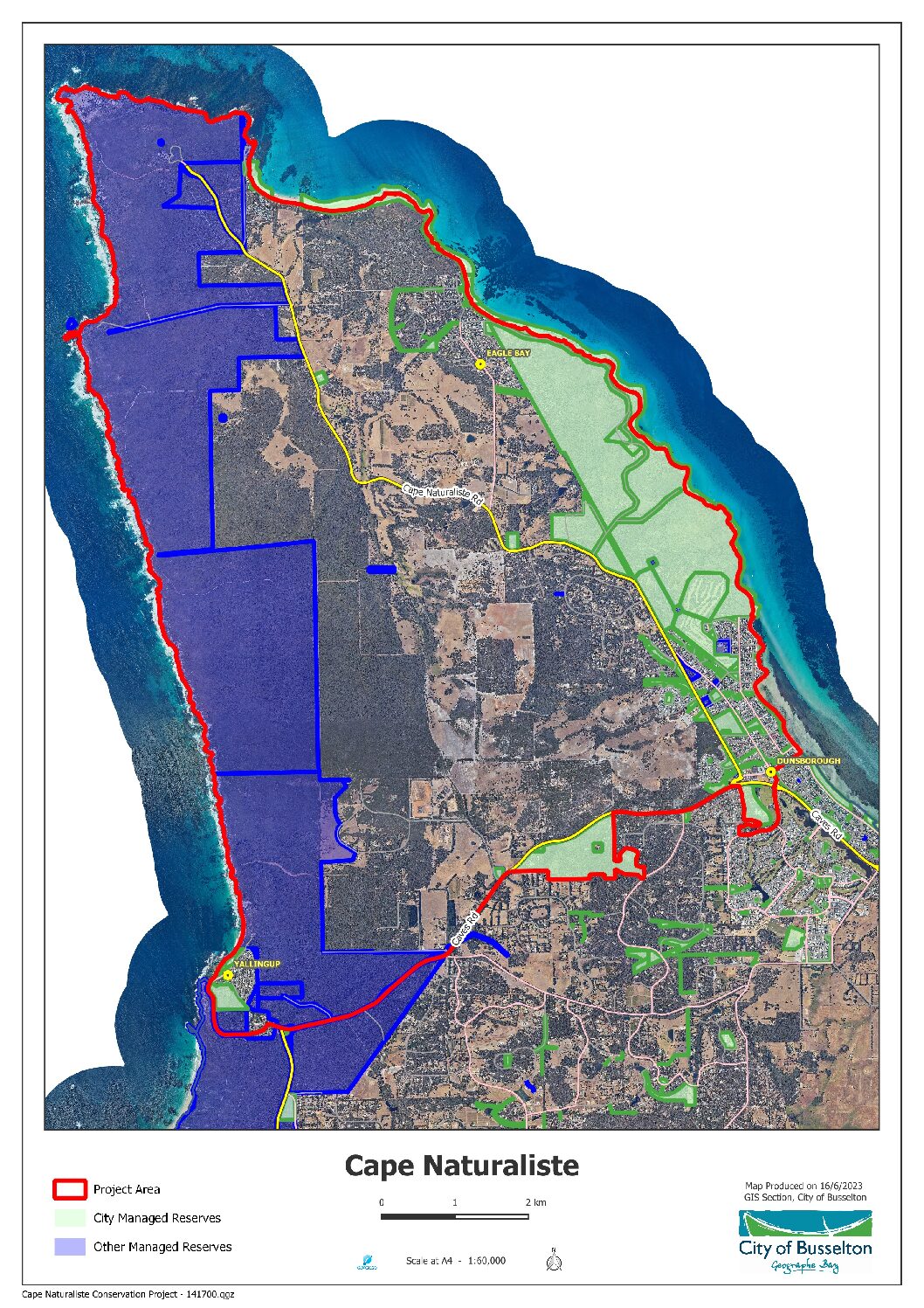
FAQ
What area does the CNCE cover?
The CNCE covers all of Cape Naturaliste north of Caves Road heading west and including the Yallingup townsite. It also includes Big Rock and Quedjinmia Reserves, both of which are south of Caves Road, as important areas of remnant vegetation with high biodiversity values.
What do I need to do?
Register using the link above, and you will be provided with more information on next steps, depending on which program you wish to register for.
How will feral animals be monitored on my property?
At least two unlured, flash-free cameras will be installed on your property to measure the movement and abundance of feral animals. This will help guide the location of control efforts by contractors.
What feral control options are available?
Control options will be discussed in consultation with the landholder. These include cage traps for feral cats, and 1080 baiting or trapping for foxes.
How will domestic pets be protected?
No baiting of feral cats will be undertaken in this project due to the risk to domestic (non-target) cats. The licensed pest control operators are experienced in identified in identifying the difference between feral and pet cats, and have scanners for ID chips.
Surrounding landholders will be notified 2 weeks prior to feral cat and/or fox control being conducted with prompts to ensure pet cats wear a collar if/when they are outside, and for dogs to remain inside and not allowed to roam during control periods.
1080 baiting signage targeting foxes will be erected on all properties where 1080 baiting occurs, and it is recommended that landholders control their dogs while baiting operations are underway.
Latest news on the CNCE
Biodiversity assessments to know your nature
Landholders can now access expert advice on how to protect and restore the environment on their properties, thanks to biodiversity assessments offered by Nature Conservation Margaret River Region’s expanded team. The assessments are a response to strong demand from...
Pindone warning over rabbit bait
Nature Conservation Margaret River Region is urging caution after a kangaroo was reported to have died from suspected pindone poisoning recently. Pindone, a poison commonly used to control rabbits in urban and semi-rural areas, is mixed with oats or carrots and works...
Empire Retreat backs biodiversity
One of the Cape’s most recognisable tourism businesses is playing a hands-on role in local conservation and biodiversity, with Empire Retreat and Spa tackling revegetation and weed control as part of the Cape Naturaliste Conservation Enterprise (CNCE). When the new...
Address
Community Resource Centre
33 Tunbridge Street
Margaret River WA 6285
Postal Address
PO Box 1749 Margaret River WA. 6285
Contact Us
Phone: (08) 9757 2202
Email: info@natureconservation.org.au
